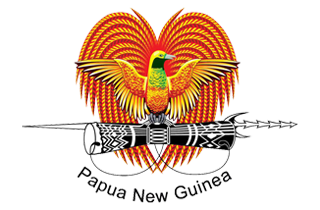Daily life and social customs
- Climate of PNG
- Constitutional Framework
- Cultural Events
- Cultural Institution
- Cultural Life
- Daily Life and Social Customs
- Decolonization
- Demographic-Trends
- Finance
- Education
- Economy
- Drainage-Soil
- History
- Health-Welfare
- Housing
- Justice
- Land
- Labour-Taxation
- Local-Government
- Media-Publication
- Manufacturing
- National Anthem and Pledge
- National Politics in the 1990s
- PNG History
- People – Ethnic Groups
- Plant and Animal
- PNG Public Holidays
- Political Process
- Postcolonial Politics
- Regional Relations
- Relief
- Religion
- Services
- Settlement Patterns
- Sports and Recreation
- Trade
- Transportation &telecommunications
People’s daily lives vary enormously in Papua New Guinea, with the great majority of the population living across the diverse rural landscape in villages or hamlets. Daily life usually centres on the extended family, whose primary responsibilities are producing food for subsistence and rearing children. Most people have rights to use portions of land for the growing of food and some cash crops as well as the rights to fish, hunt, and gather timber from local forests. Many of those activities are accompanied by rituals to ensure success and prosperity.
Other major rituals, such as menarche ceremonies for girls and initiations for boys, are declining. The Highlands social system previously involved the strict separation of men and women, with men sleeping in men’s houses somewhat akin to military barracks and women sleeping in separate garden houses with the small children. With the incursion of newer cultural influences, that system has been modified in much of the region. Wealthy and prominent men with multiple wives retain separate households for each.
The clan forms the major unit of social organization. Almost all Melanesian societies are patrilineal, tracing descent through the male line, and even matrilineal societies, where descent is traced through the female line, remain patriarchal—i.e., male-dominated. In some areas descent and land rights can be claimed through either parent, so people can belong to both their parents’ clans.
Marriage within a clan would be perceived as incest, and so marriage is only possible across clan lines and sometimes across the boundaries of a tribe. Large tribes are not the norm, but where they do exist they have a degree of political unity and can be viewed as federations of clans. They may share origin myths, and in such cases clans can be seen as being like “brothers,” sons of a founding father.
These social structures form the lines of conflict expressed in the interclan warfare that persists in the Highland provinces, and in those areas they often form the lines of political competition in contemporary elections.
When people migrate from rural villages to urban areas or rural resettlement areas, they carry their languages and customs with them and re-create their existing social structures. Social bonds and obligations of the wantok system can provide support for those struggling in new locations but also create heavy demands on the more affluent people who feel obliged to support their kin. The demands of wantoks are often held to be a root cause of corruption.
Increasingly there are second or third generations of townspeople who have “mixed marriages” across language lines, who while affiliated with both their parents’ relatives often display a greater sense of nationhood than their age-mates who have less multicultural backgrounds. Intergenerational tensions reflect the stresses of rapid social change in rural and urban contexts.
In both villages and cities, music and dance celebrations often mark important life-cycle events such as birth, death, initiation, menarche, economic transactions (even the opening of a roadway), peacemaking, and religious observances. Traditional expressions are now sometimes mixed with or even replaced by string band music, Christian hymns, or both, primarily reflecting modified influences from the West and from other Pacific Islands areas.
Postal Address:
P.O Box 422, Waigani,
National Capital District (NCD)
Papua New Guinea (PNG)
- Central Government Office, Kumul Avenue, Waigani, N.C.D
- inquiries@dfa.gov.pg
- +675 301 4100
External Links
- Goverment Departments and Agencies
- Department of Prime Minister and National Executive Council
- Department of Planning & Monitoring
- Department of Treasury
- Department of Finance
- Department of Personnel Management
- Department of Justice & Attorney General
- National Parliament of Papua New Guinea
- Immigration and Citizenship Services Authority
- Papua New Guinea Tourism Authority
- Investment Promotion Authority
- Kumul Consolidated Holdings
Subscribe to Our Newsletter to get Important News, Amazing alerts & Inside Scoops:
51
VISITORS




